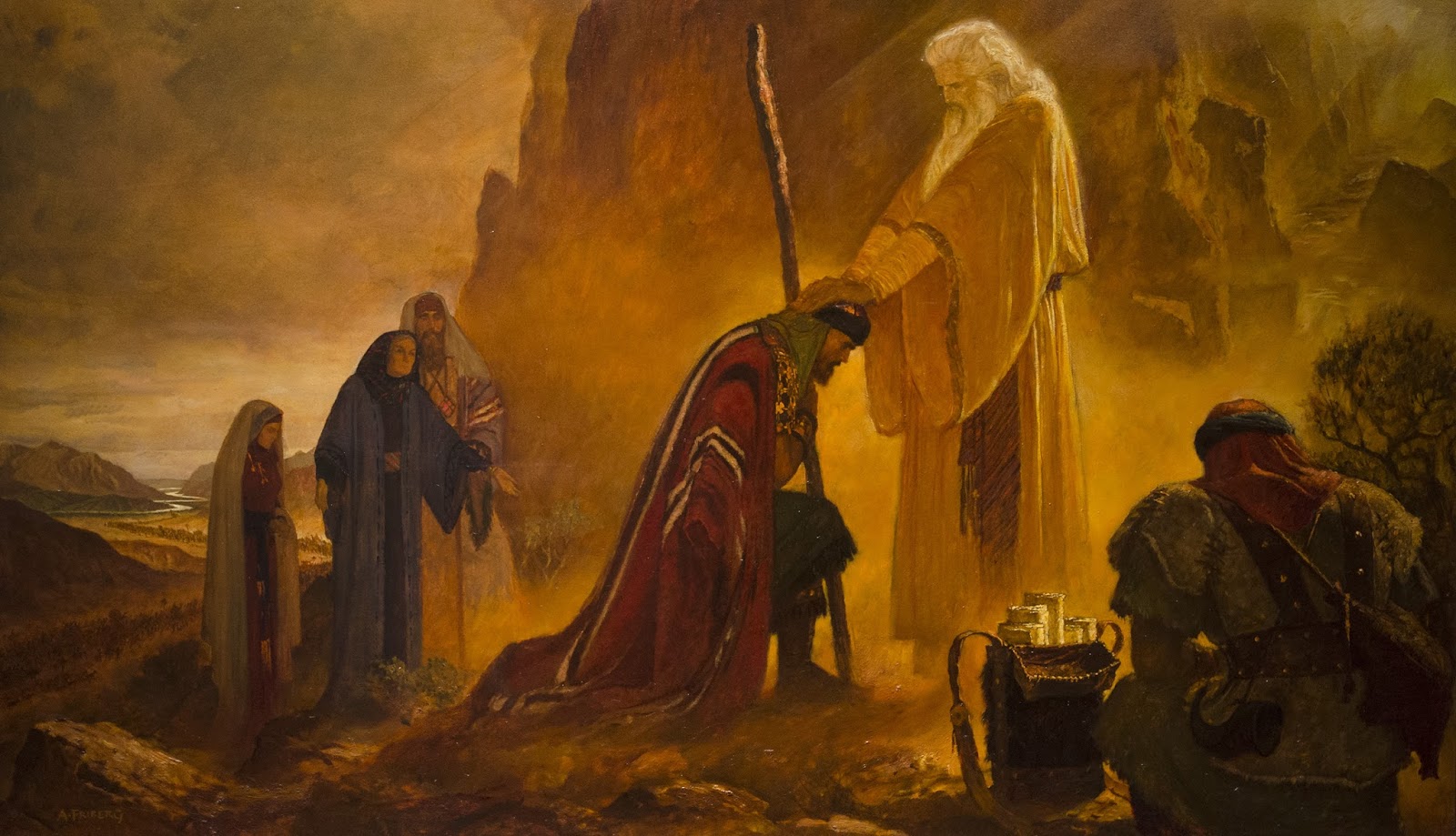Over the course of each week during Lent...
Dr. Junius Johnson will bring us weekly reflections and guide us in discovering the practices and principles that amount to lifelong discipleship.
Lent is a time of consecration. It is a time set aside for us to intentionally dedicate and rededicate ourselves to the work of the Lord, to bringing our efforts in tune with the work of Christ. His forty days shape and guide our forty days. And so at the end of our forty days, we hope to arrive at a place like the place to which Christ arrived at the end of his.
Christ was not the first to undergo the forty day period of trial. It rained for forty days during the Flood (Genesis 7:17), and Elijah walked forty days in the strength of the bread delivered to him by the angel (1 Kings 19:8). And of course Moses spent forty days on the mountain of God to receive the ten commandments. Christ’s forty days is the fulfillment of all these others, and it is also the prototype. That’s the funny thing about God’s relationship to time: because he is present to every time without being contained by any of them, he doesn’t have to follow a strict temporal sequence. Thus, Christ can be the Lamb slain before the foundation of the world (Revelation 13:8), even though that slaying takes place in the center of history. Christ’s fast is the pattern for the others, even though it comes after them in time.
The forty days of the Flood signify the completion of God’s judgment, the pouring out to the last dregs of the cup of his wrath. The forty days of Elijah’s journey to Horeb signify God’s sustaining and empowering grace (“Arise and eat, for the journey is too great for you,” 1 Kings 19:7). The forty days Moses spent on the mountain are the joining of these two. We see judgment falling upon the people for the idolatry they fall into, and we see the empowering of Moses with the vision of God. But it adds a third thing, which is conformity: for when Moses comes down from the mountain of God after his second forty days, his face shone with the glory of God. This was the reflection of the cloud of glory that Moses had walked into, and in which he spoke with God. His conformity to God became a physical thing, a visible reality. So clear was the image of God in him that the people were terrified, and he had to put a veil over his face (Exodus 34:29-33).
This is what we seek in these forty days: to be so conformed to Christ by our imitation of him that he shines forth from our words and actions. To be a Christian is to be an image of Christ, one who belongs to him; in Lent, we strive to allow ourselves to be made into true Christians, and we do this where the world can see because it is for them that we so desperately need to shine.
At the end of forty days, Elijah heard the voice of God, and Moses saw God’s back and heard the name of God declared. But at the end of his forty days, Christ found Satan and temptation. It is true that when we will have completed our season of fasting and celebration, we will find the glory of God, presented to us in the Easter worship and on the lord’s table; but that is not all we will find. The fast purifies the eyes to see the world with clarity. This means finding the powers of darkness as well as the powers of light.
The more you progress in consecration, the more likely you are to find Satan waiting to test your resolve.
He comes at Christ with three temptations, and so we ought to expect something similar. But the disciplines of Lent arm us against these temptations, preparing us ahead of time for what is to come.
The first temptation was to turn a stone into bread, and in so doing to make the needs and comforts of the body more important than the created purposes of God. Why? Because those stones were not created to be bread, but to be stones, and as stones, they are good and proclaim the glory of God in a way that only those stones can. For Christ to commandeer them because he was hungry would be for him to make his own human needs greater than they ought to be.
Against this, we have the discipline of fasting, in which we declare exactly the opposite. When we fast, we declare, with Christ, that the food of the body is not the only or the most important food. We deny ourselves to proclaim him; we decrease so that he may more readily increase: not in his own being, which cannot increase, but in the degree to which he is known through us.
The second temptation was to put God to the test, to enlist God as the means by which we would achieve what we desire, or to validate ourselves. It is to make us the goal of God’s being, the reason for his existence: to turn him into a side character in our story. But this is his story, and we are the side characters. Against this temptation, we have prayer to reground us outside of ourselves, to remind us that in sin we have turned the world upside down and tried to make it revolve around us. Prayer restores the proper orientation of the world, and brings our soul into submission to and harmony with the Lord of Lords.
The third temptation is the temptation to rule. This one always struck me as the strangest of the three, for Christ is indeed meant to rule, and has ruled from all eternity. But at this moment in his life, rule is not the goal. He did not come to rule, but to serve. That was the focus of the Incarnation. He will come again in glory to judge the living and the dead, but that is not this coming, and it is critical that he not skip ahead to that second coming. For if he comes into his kingdom and authority at this point in the story, before he has done the work of salvation and reconciliation, who would be able to stand? The whole world must be overturned in ruin, and Satan would have what he wants: the final destruction of every soul.
Christ must serve first in order that we may be saved.
Against this temptation to rule we have almsgiving. Our money is the expression and concentrated essence of our power. It allows us to shape our lives as we will, filling them with luxuries and extravagances that are not good for our souls (and often not for our bodies, either). But it also affords us mastery over others, and allows us to entice or bend them to our will. Our money, hoarded in our coffers, does not serve others: rather, it serves to keep us from having to serve others. When we let go of that money, even if just a portion, what we are really letting go of is the hold it has over us. When we take from our own stores, especially when we take sacrificially from our own stores, to give to those who are poor relative to us, we serve them out of our fullness. We give them dignity, for we proclaim that their poverty is not a statement about their worth. We must affirm this tirelessly: to be poor, even to be poor through one’s own fault and sin, is not to be less worthy in God’s eyes. The worth of a human comes from the fact that God loved that person in creating them and loves them still in holding out redemption to them. When we offer them money, we offer them more than just a momentary alleviation of their distress; we also offer them our belief that they have an equal claim with us on the love and promises of God. We love ourselves by surrounding ourselves with riches and the means to be protected from literal and metaphorical calamities.
We love our neighbors as ourselves when we extend that protection to include them.
One last point: while I have correlated the Lenten disciplines to specific temptations of Christ, these disciplines support and interact with one another so much that they cannot be confined within a single sphere. Fasting will help us guard against testing God and idolatry of self; prayer will guard us also against the comforts of this life and the glories of this world; and almsgiving will ward off luxury and an undue focus on what God will do for us.
The temptations are the obstacles to making our consecration, our conformation, real and lasting. Unless we overcome these temptations in the Spirit of God, we have only approached conformation, and then turned back at the decisive moment. There is no conformity to Christ that is not victorious conformity to Christ.


